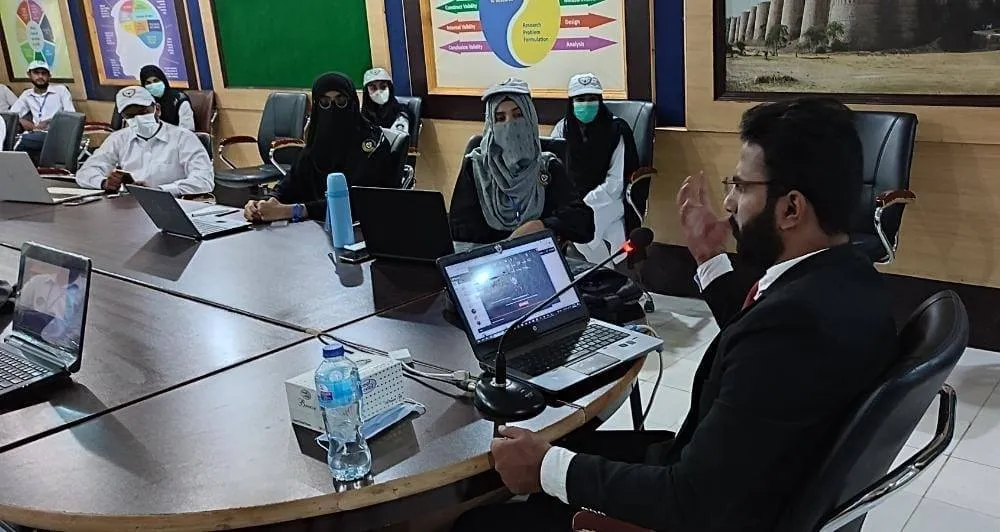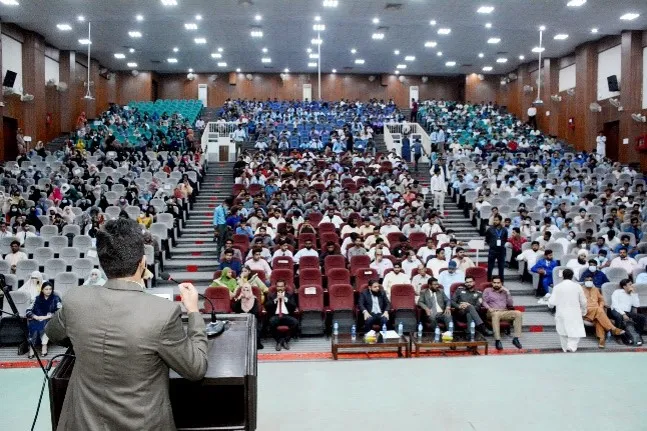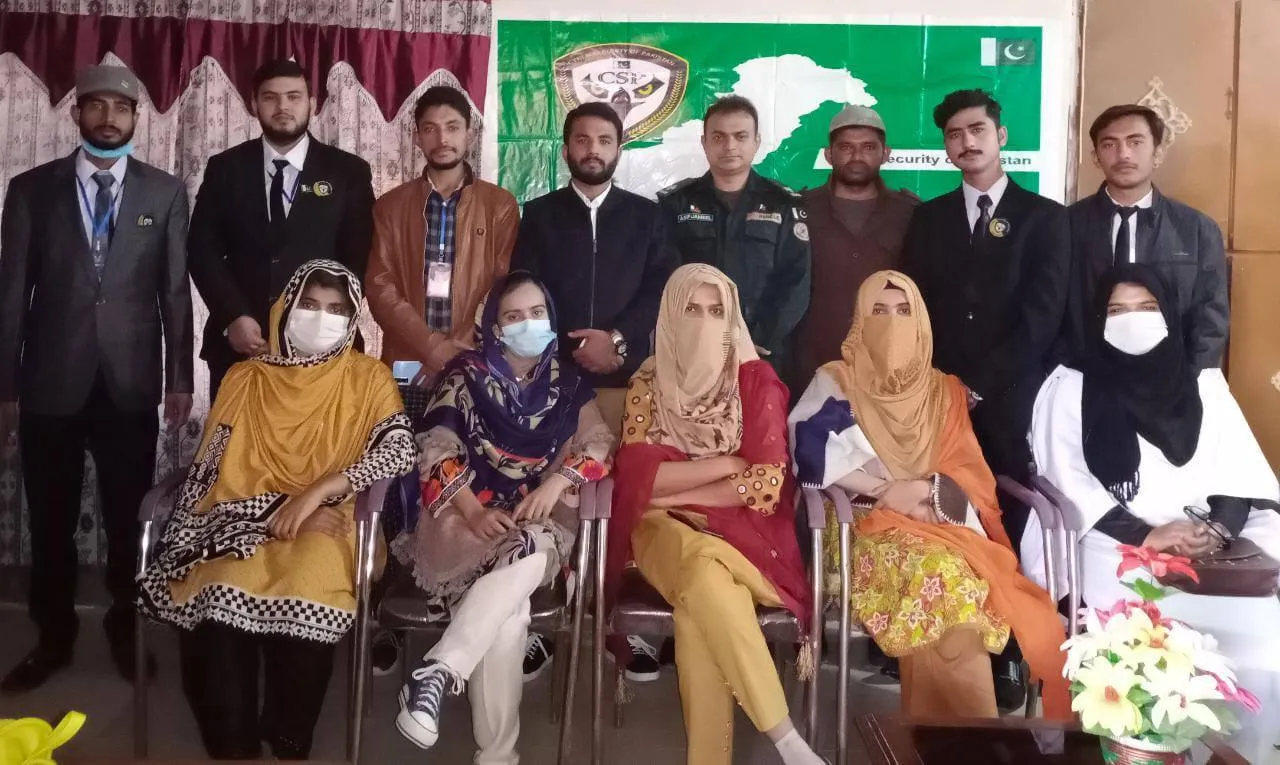
Cyber Security of Pakistan (CSP) is a non-profit initiative taken by Cyber Security Zone. We are a team of passionate individuals dedicated to empowering the Pakistani community with cyber security knowledge and awareness.
Founded in 2019,
Initiative taken by Cyber Security Zone, aims to secure Pakistan's cyber space from upcoming cyber threats.
Cyber Security of Pakistan (CSP) is a non-profit initiative taken by Cyber Security Zone. We are a team of passionate individuals dedicated to empowering the Pakistani community with cyber security knowledge and awareness.
Founded in 2019,
Initiative taken by Cyber Security Zone, aims to secure Pakistan's cyber space from upcoming cyber threats.

CSOP is a mission-driven CSR initiative by CS Zone Pvt. Limited. Dedicated to bridging the gap between digital adoption and cyber awareness, we leverage industry expertise to build a resilient “Human Firewall.” Through nationwide awareness and advocacy, CSOP empowers every citizen to navigate the online world safely, fostering a secure and confident digital culture for the nation.








































































Supporting victims of cyberbullying, harassment, and online threats through counseling.
Reducing mental stress and promoting digital well-being through awareness programs.
Delivering digital safety awareness sessions in schools, colleges, and universities.
Training youth through the Cyber Scouts Program.
Making cybersecurity knowledge accessible and practical for all age groups.
Promoting responsible online learning environments.
Supporting women and girls facing online harassment or cyberbullying.
Promoting safer digital spaces and awareness of women’s digital rights.
Providing guidance through the counseling desk.
Preventing financial fraud and employment-related scams through timely advisories.
Educating individuals about safe digital job-seeking practices.
Enhancing youth digital confidence for workforce readiness.
Collaborating with educational institutions, civil society, government teams, and international partners.
Engaging volunteers, technical experts, and community leaders to amplify digital safety efforts.
Empowering marginalized groups with access to digital safety education.
Promoting inclusive online participation for underserved communities
Training volunteers to promote safe digital behavior locally.
Conducting awareness drives and community events to enhance online safety.
Promoting responsible use of digital tools and protection of personal data.
Raising awareness to prevent online scams and misinformation
Promoting responsible digital citizenship and online behavior.
Supporting institutions in managing cyber risks and verifying alerts to prevent misinformation.
Guiding victims of cyber incidents.
Collaborating with educational institutions, civil society, government teams, and international partners.
Engaging volunteers, technical experts, and community leaders to amplify digital safety efforts.
Lorem ipsum dolor sit amet, consectetur adipiscing elit. Ut elit tellus, luctus nec ullamcorper mattis, pulvinar dapibus leo.Lorem ipsum dolor sit amet, consectetur adipiscing elit. Ut elit tellus, luctus nec ullamcorper mattis, pulvinar dapibus leo.Lorem ipsum dolor sit amet, consectetur adipiscing elit. Ut elit tellus, luctus nec ullamcorper mattis, pulvinar dapibus leo.Lorem ipsum dolor sit amet, consectetur adipiscing elit. Ut elit tellus, luctus nec ullamcorper mattis, pulvinar dapibus leo.Lorem ipsum dolor sit amet, consectetur adipiscing elit. Ut elit tellus, luctus nec ullamcorper mattis, pulvinar dapibus leo.
Lorem ipsum dolor sit amet, consectetur adipiscing elit. Ut elit tellus, luctus nec ullamcorper mattis, pulvinar dapibus leo.Lorem ipsum dolor sit amet, consectetur adipiscing elit. Ut elit tellus, luctus nec ullamcorper mattis, pulvinar dapibus leo.Lorem ipsum dolor sit amet, consectetur adipiscing elit. Ut elit tellus, luctus nec ullamcorper mattis, pulvinar dapibus leo.Lorem ipsum dolor sit amet, consectetur adipiscing elit. Ut elit tellus, luctus nec ullamcorper mattis, pulvinar dapibus leo.Lorem ipsum dolor sit amet, consectetur adipiscing elit. Ut elit tellus, luctus nec ullamcorper mattis, pulvinar dapibus leo.
Lorem ipsum dolor sit amet, consectetur adipiscing elit. Ut elit tellus, luctus nec ullamcorper mattis, pulvinar dapibus leo.Lorem ipsum dolor sit amet, consectetur adipiscing elit. Ut elit tellus, luctus nec ullamcorper mattis, pulvinar dapibus leo.Lorem ipsum dolor sit amet, consectetur adipiscing elit. Ut elit tellus, luctus nec ullamcorper mattis, pulvinar dapibus leo.Lorem ipsum dolor sit amet, consectetur adipiscing elit. Ut elit tellus, luctus nec ullamcorper mattis, pulvinar dapibus leo.Lorem ipsum dolor sit amet, consectetur adipiscing elit. Ut elit tellus, luctus nec ullamcorper mattis, pulvinar dapibus leo.
Lorem ipsum dolor sit amet, consectetur adipiscing elit. Ut elit tellus, luctus nec ullamcorper mattis, pulvinar dapibus leo.Lorem ipsum dolor sit amet, consectetur adipiscing elit. Ut elit tellus, luctus nec ullamcorper mattis, pulvinar dapibus leo.Lorem ipsum dolor sit amet, consectetur adipiscing elit. Ut elit tellus, luctus nec ullamcorper mattis, pulvinar dapibus leo.Lorem ipsum dolor sit amet, consectetur adipiscing elit. Ut elit tellus, luctus nec ullamcorper mattis, pulvinar dapibus leo.Lorem ipsum dolor sit amet, consectetur adipiscing elit. Ut elit tellus, luctus nec ullamcorper mattis, pulvinar dapibus leo.